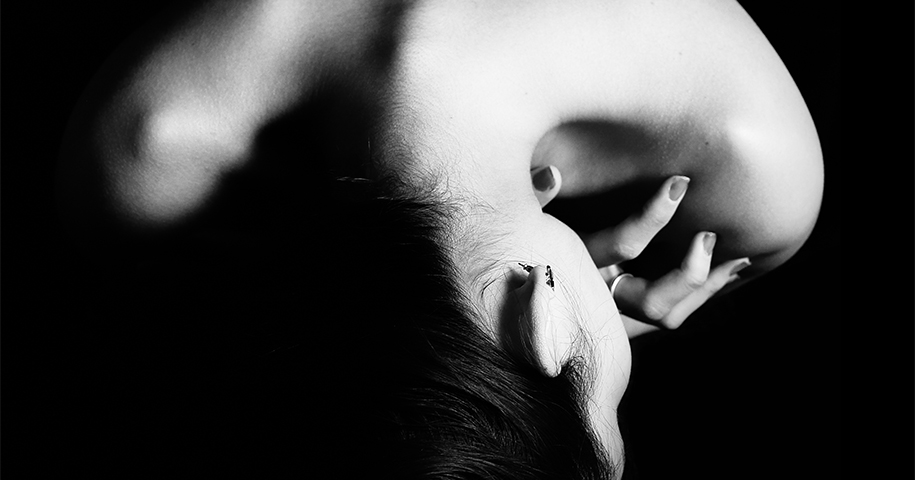“You get about 15 minutes between pimples and wrinkles. Enjoy it.” as my mom
Turns out, mom was wrong. While we all expect wrinkles with aging, menopause acne can occur or recur for the first time since our teens. Sigh.
Whether it’s prom night or project presentation day, pimples can suck your self-confidence, and no one’s got time for that. So, what’s going on and what do we do about it?
I talked with Dr. David Lortscher, MD, board-certified dermatologist, and creator of Curology. While Dr. Lortscher focuses on individually tailored treatments for acne, he shared with us some information on lifestyle choices that can help women in menopause handle changes in their skin.
Why does acne return in menopause?
As estrogen declines in midlife, so do collagen and elastin, meaning your skin may become thinner, drier, and looser than before. Hence, wrinkles. But estrogen decline also takes with it our skin’s ability to ward off acne, sometimes leading to acne during and even after menopause.
According to Dr. Lortscher, “As women transition into menopause, as at puberty, a relative predominance of androgens (male-type hormones that all women have) is responsible for acne breakouts in some. In general, androgens stimulate oil production and can worsen acne, while estrogens counter that effect.”
What can we do to treat menopausal acne?
As with all things menopausal, there are a variety of treatments ranging from lifestyle changes to over-the-counter or prescription medications, to more significant medical interventions. But many women can control breakouts by making simple changes to diet, getting more sleep, and dealing differently with stress.
Looking for prescription menopause acne treatment? A Gennev menopause-certified gynecologist can give you a trusted opinion, determine if medication is right for you, and they can provide prescription support. Book an appointment with a doctor here.
Ending menopause acne with lifestyle changes
- Consider reducing or eliminating dairy. Says Dr. Lortscher, “Milk contains precursors to testosterone and other androgens, which influence the hormone receptors in the skin to turn on the process that causes acne. The association with acne is more marked with skim milk than with whole milk, and in those consuming more than 3 portions per week. It is possible that cheese, ice cream, and yogurt may be associated with acne, but the link appears to be stronger with milk. Not everyone responds to avoiding dairy, but it is something to consider.” Dr. Lortscher warns that soy milk may also aggravate breakouts, so it may be a matter of trial and error to find what works best for you.
- Add spearmint tea. For hormonal acne, you might want to try some tea! According to Dr. Lortscher, “Although not proven, there is some convincing evidence that drinking two cups of spearmint tea per day can reduce blood levels of circulating androgens.” However, he cautions tea enthusiasts to stick to just two cups per day, as drinking too much tea can be harmful.
- Boost phytoestrogens. These are the foods that mimic our body’s natural hormone, estrogen, only weaker. Commonly found in soy, seeds, nuts and nut butters, these are good for your collagen, skin, and mood. However, if you have a personal or family history of breast cancer, proceed with caution and check with a doc.
- Reduce the sugar. Just like when you were a teen, cutting back on sugar (particularly the processed kind) will help with breakouts. Bonus: being aware of your hormones and nutrition can help. Reducing processed sugar helps with many other menopausal issues as well.
- Supplement. Consider increasing Vitamins B (folic acid, specifically), C, D, biotin, iodine, and Omega 3 supplements for women.
Other remedies are ones you’ve heard before: sleep more. Stress less. Stop smoking. Hydrate. By doing a combination of all of the above, you have a strong chance of reducing or eliminating midlife acne, and you will certainly be doing good things for your overall health. Plus, spearmint tea tastes really nice.
For those whose acne doesn’t yield to lifestyle changes, you may also want to consider adding over-the-counter remedies to your menopause skin-care regimen: look for creams that include benzoyl peroxide (but use sparingly, as this can further dry your skin) or salicylic acid to unclog pores. Or go another step to a personalized treatment plan. Sometimes hormonal acne treatments can be effective, but do not work for everyone and should be carefully evaluated before going that route. Acne after menopause is often treated in this manner, but to varying results.
Thank you to board-certified dermatologist Dr. David Lortscher, MD and creator of Curology.
We can help you
- Meet with a Gennev Doctor – Looking for prescription menopause acne treatment? A Gennev menopause-certified gynecologist can give you a trusted opinion, determine if medication is right for you, and provide prescription support.
- Vitality is our most popular daily nutrient-packed multi-vitamin supplement for women in menopause. It supports inflammation and joint pain, mood, energy, stress response and immune health.
- Be sure to get your Omega-3s – Gennev’s Heart & Brain Premium Omega-3 for Women offers care for your heart and brain as well as helps to relieve dry eyes and dry skin.
The information on the Gennev site is never meant to replace the care of a qualified medical professional. Hormonal shifts throughout menopause can prompt a lot of changes in your body, and simply assuming something is “just menopause” can leave you vulnerable to other possible causes. Always consult with your physician or schedule an appointment with one of Gennev’s telemedicine doctors before beginning any new treatment or therapy.
